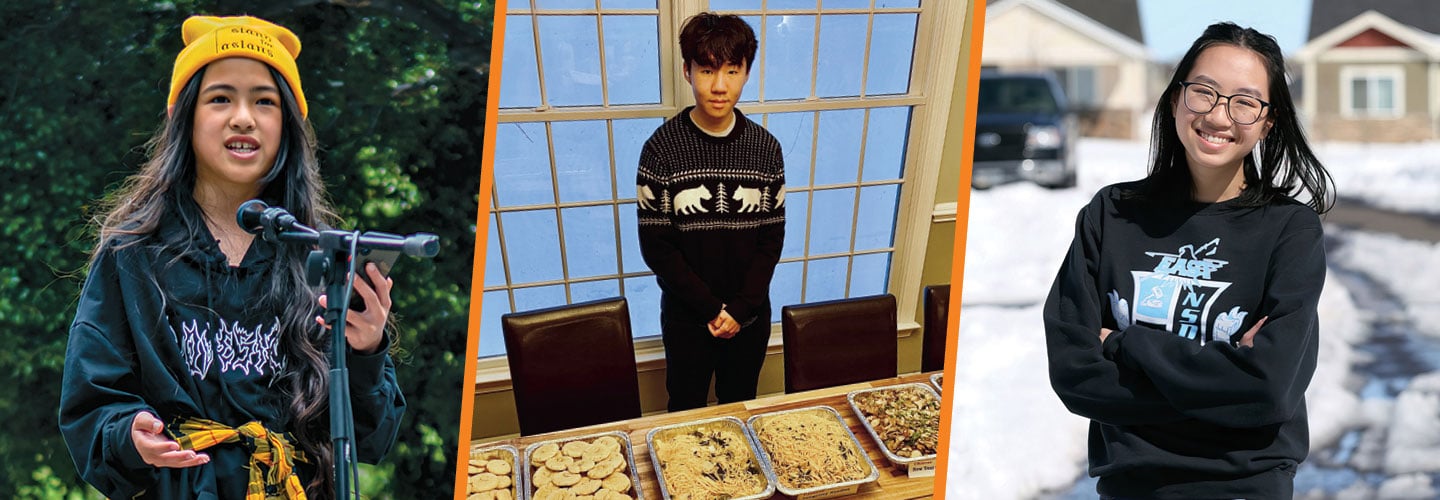What is stronger than hate? For Ben Kim, 17, it is kindness. For YuYu Yuan, 19, it is truth. And for Ashlyn So, 13, it is action.
During the Covid-19 pandemic, all three teens witnessed a surge in attacks in the United States on people who are Asian American or Pacific Islander (AAPI). The incidents ranged from verbal harassment to physical violence. More than 2,400 such attacks occurred in the first three months of this year alone, according to the group Stop AAPI Hate.
Experts say the increase is partly due to people incorrectly blaming the pandemic on individuals of Asian descent. The virus that causes Covid-19 was first identified in China, but a person’s race has nothing to do with how it spreads, scientists say.
Ben, YuYu, and Ashlyn didn’t wait for someone else to solve the problem. The teens each acted to stop discrimination and create understanding in their own way. Here’s a look at how they have made a difference—and how you can be part of the solution too.
What is stronger than hate? For Ben Kim, 17, it is kindness. For YuYu Yuan, 19, it is truth. And for Ashlyn So, 13, it is action.
During the Covid-19 pandemic, all three teens saw a surge in attacks in the United States on people who are Asian American or Pacific Islander (AAPI). The attacks ranged from verbal harassment to physical violence. More than 2,400 such attacks took place in the first three months of this year alone. That is according to the group Stop AAPI Hate.
Experts say the increase is partly due to people incorrectly blaming the pandemic on individuals of Asian descent. The virus that causes Covid-19 was first identified in China. But a person’s race has nothing to do with how the virus spreads, scientists say.
Ben, YuYu, and Ashlyn did not wait for someone else to solve the problem. The teens each acted to stop discrimination and create understanding in their own way. Here is a look at how they have made a difference—and how you can be part of the solution too.

